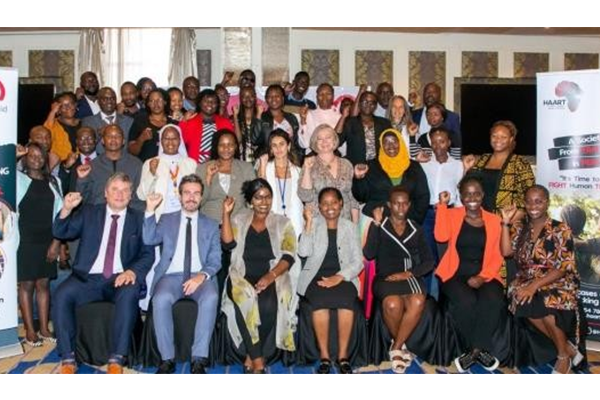NGEC Advocates for Survivor Empowerment through Entrepreneurial Initiatives
The Commission (NGEC) recently participated in a significant roundtable discussion in Nairobi aimed at promoting the economic empowerment of human trafficking survivors through entrepreneurship.
This event, organized by the Awareness Against Human Trafficking (HAART), convened a diverse array of stakeholders, including Madam Marygorret Mogaka from the Counter Trafficking in Persons Secretariat, Dr. Radoslaw Malinowski from the Polish Aid Project, and H.E. Amb. Mirosław Gojdź from the Embassy of the Republic of Poland in Kenya, alongside survivor entrepreneurs eager to discuss pathways to economic recovery.
The discussions centered around strategic approaches to enhance the economic opportunities available to survivors, emphasizing the importance of sustainable solutions.
HAART, a prominent NGO dedicated to combating human trafficking in Eastern Africa, framed the dialogue within the context of the UN Four P’s Strategy (Prevention, Protection, Prosecution, and Partnership).
A primary focus of the discussions was the potential impact of financial incentives for businesses that hire survivors versus direct grants for entrepreneurial ventures initiated by survivors themselves.
Participants deliberated on the critical role of corporations in facilitating the economic rehabilitation of survivors and highlighted the necessity of ensuring that empowerment programs are co-created with the input of the survivors, rather than imposed top-down.
The event also provided a platform for survivor entrepreneurs to share their experiences, shedding light on the cultural barriers that impede their economic empowerment. The dialogue underscored the importance of developing long-term career pathways rather than relying solely on short-term job placements.
In addition, the participants explored the potential of technology to create economic opportunities for survivors, while also considering the associated risks that need to be managed.
Discussions included the intersection of race, gender, and socio-economic status, leading to a consensus on the need for tailored empowerment initiatives that address the unique challenges faced by different survivor groups.
NGEC welcomed the opportunity to engage in this important conversation, noting the recent launch of a Kenya Judicial Bench Book on Trafficking for Sexual Exploitation. This resource aims to equip judicial officers with the knowledge necessary to identify and support trafficking victims effectively.
The Commission also reaffirmed Kenya's commitment to the Palermo Protocol, highlighting the country's robust legal framework designed to combat human trafficking.
The Commission emphasized the government’s role in creating a conducive environment for all citizens, advocating for regulatory frameworks that ensure safety and job security for those seeking opportunities both domestically and abroad.
The Commission reiterated its commitment to collaborating with both State and non-State actors to promote the principles of equality and non- discrimination, ensuring that the voices and needs of trafficking survivors are prioritized in all economic empowerment initiatives.
The roundtable discussions marked a critical step towards establishing a comprehensive framework for supporting the economic empowerment of trafficking survivors in Kenya, demonstrating a collaborative effort to foster meaningful change in the lives of those affected by human trafficking.
Group photo of participants at the Nairobi meeting on empowering human trafficking survivors through entrepreneurship, organized by HAART with NGEC and key stakeholders.


Comments